loans
Bangladesh Bank adopts new provisioning system to tackle non-performing loans
In a bid to mitigate the severe liquidity crisis and prevent bankruptcies stemming from non-performing loans (NPLs), Bangladesh’s central bank has introduced a new provisioning model in compliance with international financial standards.
The move aims to ensure banks are better equipped to handle loan defaults and maintain financial stability.
The initiative comes as several banks, including those associated with prominent business groups, have struggled with significant NPLs, causing acute liquidity issues.
In September last, the provisioning shortfall for 10 major banks exceeded Tk 50,000 crore, with two state-owned banks, Janata Bank and National Bank, accounting for 65% of this deficit.
To address this crisis, the Bangladesh Bank has opted to implement the International Financial Reporting Standard (IFRS-9) Expected Credit Loss (ECL) model, which will gradually replace the previous provisioning system.
Dutch-Bangla Bank to issue Tk 1,200 crore bonds
This model, initially adopted in 2014, ensures that provisions are made early, based on a loan’s credit history, performance and future outlook, rather than waiting for the loan to default.
The goal is to prevent sudden liquidity shocks in the banking sector when loans become non-performing.
According to the Bangladesh Bank’s roadmap, the new system will be fully implemented by December 2027.
Within this timeline, banks are required to establish dedicated working teams, including risk officers and financial officers, to transition to the new model.
These teams will report their progress to the central bank in stages, starting with an update in April 2025. By July 2026, the full framework will be in place, with final reports submitted to the Bangladesh Bank.
Bangladesh Bank extends import bill payment period to 360 days
The transition process will be carried out in phases, with 25% of loan portfolios automated under the ECL model starting in September 2026.
The full implementation, covering 75% of loan portfolios, is expected by June 2027, with the entire banking sector’s provisioning system fully aligned with IFRS-9 standards by December 2027.
Experts believe the new system will improve transparency in the banking sector, preventing the concealment of poor loan portfolios and ensuring that banks’ financial health is accurately reflected.
Mohammad Abdul Mannan, Chairman of First Security Islami Bank, said that a similar model was introduced in the 1990s, revealing the true financial state of many banks that had previously hidden their weak positions.
He, however, stressed that while the ECL model would improve provisioning, it would not eliminate the root cause of high NPLs, which often stem from governance issues.
A senior official at the Bangladesh Bank highlighted that the ECL model would allow for automated reporting, eliminating the possibility of data manipulation.
This shift will provide the central bank with real-time insights into the financial condition of each bank, enabling timely interventions when necessary.
The official also noted that banks would need to strengthen their IT infrastructure to meet the demands of this transition, and that the central bank would monitor the capabilities of each bank’s implementation team closely.
BIDA launches FDI Heatmap to attract targeted investment in key sectors
As Bangladesh continues to navigate the challenges posed by non-performing loans, the adoption of the IFRS-9 model marks a significant step towards restoring stability and transparency in the country’s banking sector.
Experts said that robust corporate governance and enhanced oversight will be crucial for the system to be effective in the long term.
1 year ago
Stop loan default culture to save economy: Anisul Islam Mahmud
The main opposition Jatiya Party lawmaker Anisul Islam Mahmud on Tuesday (February 13, 2024) demanded the government of Bangladesh put an end to the loan default culture to save the country’s economy.
“In this situation, we need to stop the culture of wilful loan default,” he said.
Anisul Islam, a veteran parliamentarian and the deputy leader of the opposition, placed the demand in the House, taking the floor on a point of order.
Citing a newspaper story, he said the banking sector's defaulted loans soared by over 20 percent to Tk 145,633 crore in 2023 as both governance and accountability continue to get looser.
98 percent of the country's demand for medicine is produced locally: Health Minister
“Whenever this issue is being discussed, we are told that Bangladesh Bank and other banks are taking measures to reduce this (defaulted loans). But we never see that defaulted loans are declining, rather it is going higher,” he said.
The Jatiya Party MP said the amount of defaulted loans was Tk 28,000 crore as of 2008. The number of defaulted loans has increased to Tk 1.45 lac crore since 2008 to as of today which is very alarming.
He said there is a cash crisis and a dollar crisis in the banking sector. Some strong measures have been taken to tackle this situation.
With Pahela Falgun-Valentine’s Day, the nation eyes a festive February 14
Anisul said Bangladesh Bank (BB) is telling that they want to reduce the amount of defaulted loans from existing nine percent to eight percent of total outstanding loans.
“But their (BB) track record says that they will not do so,” he continued.
The opposition lawmaker requested the Finance Minister to give importance to stopping the loan default culture.
“The issue of loan default culture has been discussed in parliament so many times. But nothing has happened,” he added.
Govt okays project to provide freelancing training to youths in 48 districts
2 years ago
Bangladesh Bank sets max interest rate of 10.20% on industrial loans for 6 months
The interest rate on loans from banks in October has been set at 10.20 percent as per Bangladesh Bank’s formula.
The method, based on which the interest rate is now being determined, is known as “SMART” or “Six Months Moving Average Rate of Treasury Bills.” Bangladesh Bank informs of this rate at the beginning of every month.
The new interest rate determining method was introduced on July 1, 2023. Earlier, from April 2020, the maximum interest rate on bank loans was 9 percent.
With D grade Bangladesh Bank governor fares poorly in global ranking
Accordingly, in the current month of October, banks can take a maximum of 10.20 percent interest on large-scale industrial loans.
On the other hand, non-banking financial institutions (NBFIs) can charge interest against loans by adding a margin at a maximum rate of 5 percent. Their maximum interest rate will be 12.20 percent and 9.20 percent on deposits. However, the loan interest rate set in October cannot be changed within the next six months.
This will make the highest interest rate on agricultural loans in September 9.14 percent. An additional 1 percent supervision charge can be levied on CMSME, personal, and car purchase loans.
Bangladesh Bank introduces dollar booking policy for max 1 year
Bangladesh Bank publishes the 6-month average interest rate of 182-day treasury bills from January this year. Last January, the smart rate was 6.96 percent. After that, it gradually increased every month and reached 7.13 percent last May. But in June and July, it decreased slightly to 7.10 percent.
However, it increased to 7.14 percent in August and reached 7.20 percent in September.
On the advice of the International Monetary Fund (IMF), Bangladesh Bank introduced a market-based interest rate system.
Despite Bangladesh Bank Governor’s decision to not raise exchange rate before election, dollar rate hiked again
The interest rate cap of 9 percent was imposed from April 2020 to facilitate traders.
A research report by the central bank also recommends withdrawing or increasing the interest rate limit. But Bangladesh Bank was silent as the government did not give positive consent. One of the conditions of IMF’s USD $4.7 billion loan is to make the interest rate market-based. In light of that condition, the new interest rate system was introduced.
2 years ago
Agricultural credit disbursement on course to meet target
Farm loans disbursement is on course to meet the target as banks have disbursed 68.15 percent of the target in eight months (July-Feb) of the current fiscal.
Bangladesh Bank's latest loan update shows that around Tk 21,660 crores were disbursed in the agriculture sector against the target set for the fiscal of Tk30911 crore.
The update revealed that 12 banks had achieved 100 percent of the target set for the disbursement of agricultural loans in the first eight months of FY2022-23.
However, 14 banks are lagging behind. Even after 8 months, these banks could not distribute even 50 percent of the targeted farm loans.
Also Read: 45 services on agriculture available on single digital platform
Banks that have disbursed more than 100 percent of the target include Bank Al-Falah, Commercial Bank of Ceylon, Habib Bank, State Bank of India, Bank Asia, Dhaka Bank, One Bank, Simanta Bank, Uttara Bank, Citibank NA, HSBC, and Uri Bank.
According to the report, state-owned banks have distributed Tk8,623 crore while foreign and private sector banks have disbursed Tk 12,434 crore.
According to the BB, till February 2023, the disbursement of total agricultural loans stood Tk 51,236 crores. Of this, Tk20,986 crores have been paid back,so the loan recovery rate is about 41 percent.
Also Read: Boost research on agriculture to increase production: PM Hasina tells scientists
Default stood at Tk 3932 crores, which is 7.68 percent of loans.
As per government policy, agricultural production has been emphasized considering food security.
The BB is also working towards that goal. Banks have been given strict instructions to increase agricultural credit disbursement and it is being constantly monitored.
2 years ago
BB relaxes rule of storing audited financial report for CMSMEs
Bangladesh Bank (BB) has revised the directive to maintain the audited financial reports of loan renewals and file of new loans in accordance with the rules in order to bring order and transparency in CMSMEs loan disbursement.
But considering the global economic situation and to accelerate the economic activities of the country, the time frame for renewal of loans to 'cottage, micro, small and medium sector entrepreneurs (CMSMEs)' and guidelines for preservation of audited financial reports has been extended by two years.
On Monday, the Banking Regulations and Policy Department of BB issued a circular in this regard and sent to the executives of banks for immediate execution.
The circular stated that the companies in the CMSME sector, which are considered as public interest entities according to the Financial Reporting Act, the financial reports audited by the chartered accountants at the time of loan approval and renewal of those companies must be compulsorily stored in the loan file from January 1, 2025.
Read more: BB relaxes ICRRS to facilitate businesses’ loan
In the earlier directive, the retention period for these loans was fixed from January 1, 2023.
The new directions have been emphasised to accelerate the economic activities of the country by taking into account the global economic situation and by increasing the flow of credit to the CMSME sector.
3 years ago
HCA signed, €609 million in loans approved by AFD for Bangladesh
In 2022, AFD and the Economic Relations Division of the government of Bangladesh signed a host country agreement (HCA) for the establishment of AFD activities in Bangladesh, a successful outcome of years of negotiations between the French and Bangladesh governments.
This was a crucial step which came after 10 years of operation and over 20 projects financed in the country, said a media release on Tuesday.
Agence Française de Développement (AFD) Group is a public financial institution that funds, supports and accelerates transitions towards a more just and sustainable world.
Read more: Govt to honour expats through National Expatriate Day: Momen
AFD has become a major development partner of Bangladesh.
For the single year of 2022, €278.3 million (loans and grants) were approved, and an unprecedented amount of €183.5m was disbursed.
“AFD has more than doubled the amount of its financing in the course of the last three years. This only bears witness to the trust between our two countries, France and Bangladesh. It is also thanks to the efforts of dedicated actors, AFD staff together with our colleagues of the Economic Relations Division of the Ministry of Finance of Bangladesh, that all this was possible. We look forward to continued cooperation between AFD and the ERD, our two countries, for the benefit of the citizens of Bangladesh that both our governments serve,” AFD Country Director for Bangladesh, Benoit Chassatte, said.
3 years ago
BB disburses Tk 4000 crore as liquidity support to 5 Islami banks
Bangladesh Bank on Wednesday disbursed Tk 4000 crore as liquidity support to five Islami banks to meet ongoing liquidity crisis, sources in the central bank said.
Five Islami banks had earlier applied to the Bangladesh Bank, seeking liquidity support. They are Islami Bank Bangladesh Limited, Union Bank, Social Islami Bank, First Security Islami Bank and Global Islami Bank. The five banks belong to S. Alam group.
Central bank’s spokesperson Mezbaul Haque told UNB that it was decided to pay Tk 4,000 crore against Sukuk bond facility.
Read more: Bangladesh Bank curtails banks’ power to waive interest on loans
Islami banks can take more money, if required, under Sukuk bond facility, he said.
While BB Governor and Managing Directors of five Islami banks have denied the liquidity crisis in their respective banks, the liquidity shortage is still hampering the daily transaction, sources said.
On Monday, the Islami Bank Bangladesh Ltd’s deposits fell to Tk1,46,964 crore. On October 31, the deposit of the bank was Tk1,53,272 crore.
Earlier, IBBL had been lending money to all Islami banks for so long. But, IBBL is now going to other banks for money, a deputy managing director of the bank told UNB.
After the recent loan scam over Tk34,000 crore, a group of people withdrew their deposits from the bank, which is also another reason for the liquidity crisis, he said preferring anonymity.
Read more: Default bank loans surge to record Tk 1.25 lakh crore in Bangladesh: BB
In this context, five Islami banks have suddenly faced a liquidity crisis and are struggling to meet demand for regular transactions. Officials say the central bank has taken the special initiative to lend money to these banks to keep them afloat.
Bangladesh Bank has launched an investigation to look into the scam. The High Court separately has asked for clarification from S Alam group over the scam.
3 years ago
Banks reschedule loans worth nearly Tk 6000 crore, waive Tk 2800 crore in interest in first 6 months of 2022
Despite reduced instalment facilities in term loans, banks have rescheduled loans worth Tk5960 crore and waived interest amounting to Tk2816 crore of interest waived in 6 months (January-June), revealed latest data of Bangladesh Bank (BB).
According to the BB data, state-owned banks rescheduled loans worth Tk 1,300 crore, while private banks Tk 4,150 crore. The remaining Tk 779 crore has been rescheduled by specialized banks.
The BB introduced a loan moratorium and reduced instalment facility during the Covid pandemic to avert huge defaults as the businesses were affected by the adverse impact of the Covid-19 pandemic.
Read: Default bank loans surge to record Tk 1.25 lakh crore in Bangladesh: BB
Despite those moves, the accumulated default loans rose to Tk1.25 lakh crore till June this year. The banks had to reschedule around Tk5960 crore, posing a challenge to the sector.
Bankers said many small and big businesses have been affected due to the pandemic. Many have halted regular loan repayments, raising the issue of the pandemic. Some banks are not able to collect the loan repayments due to irregularities and corruption.
As a result, the default loan volume is increasing, and now stands at around 9 per cent of the country’s total disbursement of loans.
3 years ago
Banks set to provide Tk433 crore loans to tannery owners
Banks will provide Tk433 crore loans to tannery owners for purchasing rawhide after Eid-ul-Azha, the highest rawhide collection season in the country.
Of these loans, four state-owned banks (Sonali, Janata, Agrani and Rupali) will provide Tk 258 crore.
Of which, Janata Bank Limited has set a target of providing the highest amount of Tk 120 crore. Last year, the same amount of loans were planned to be distributed, but finally Janata Bank disbursed Tk 40 crore only.
Read: Govt hikes rawhide prices ahead of Eid
According to Bangladesh Bank (BB), the tannery owners will get bank loans of Tk 433 crore to buy raw hides. A portion of this loan has already been disbursed, the central bank sources said.
This year, Rupali Bank is giving loans of Tk 30 crore, Agrani Bank Tk 83 crore and Sonali Bank Tk 25 crore.
After the disbursement of loans in the leather sector in the nineties, most of the loans were not repaid. As a result,the private banks have stopped giving loans for this sector due to non-repayment culture of tannery ownets.
Read: Savar Tannery Estate: Guideline to be prepared over plot allocation
Now all the four state-owned banks are lending more to buy raw-hide. Apart from this, a few private banks are giving a small amount of loans.
Bank officials say there is a tendency among tannery traders to invest the loans money in other sectors. That is why they willingly become loan defaulters.
3 years ago
Bangladesh receives record $8.41 bn foreign loans in 11 months
Bangladesh received a record $8.41 billion in foreign loans in 11 months of current FY2021-22, the Economic Relations Division said on Thursday.
At current exchange rate the amount is equivalent to Tk 78221 crore, the highest loan ever in a single fiscal year. The amount is 47 per cent higher than the previous fiscal year.
The ERD officials estimate that the foreign debt will exceed $9 billion by the end of the fiscal year on June 30, 2022.
After the economic crisis in Sri Lanka, there is a lot of talk about Bangladesh's foreign debt.
Also read: Default loans cross over 126 crore: Finance Minister
However, economists and analysts are dismissing the comparison between the two countries. They say foreign debt is still below 13 per cent of Bangladesh's GDP.
In case of Sri Lanka, it is close to 50 per cent.
Economist and researcher Ahsan H. Mansur said, "The leap has been made by receiving more loans than expected from various donor countries and organizations, including the World Bank and the ADB, to offset the effects of the two-year pandemic."
Analysis of ERD data shows that in the last FY2020-21, Bangladesh received $7.10 loan assistance from development partners.
Before that, in the fiscal year 2019-20, Bangladesh received $7.38 billion foreign loan that was the history of the country till FY 21.
Also read: FBCCI seeks loan moratorium till December
Foreign debt has been increasing in Bangladesh since the fiscal year 2017-18. In the same year, it jumped to $6.37 billion. Then in the fiscal year 2018-19 it stood at Tk6.54 billion.
3 years ago

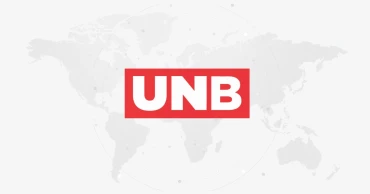
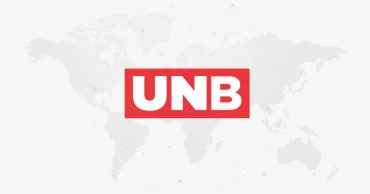
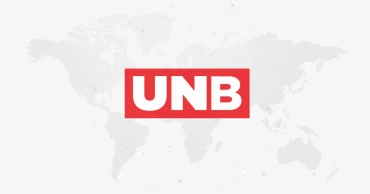
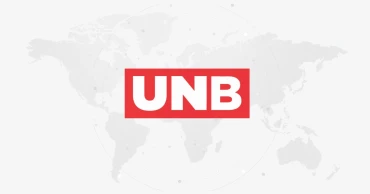
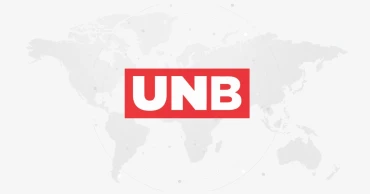
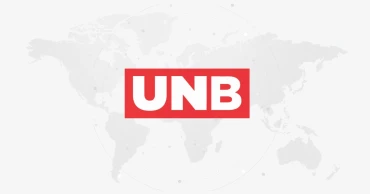
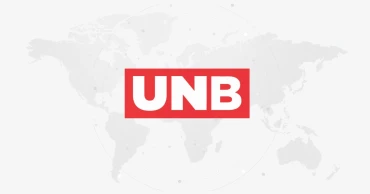

.jpg)







